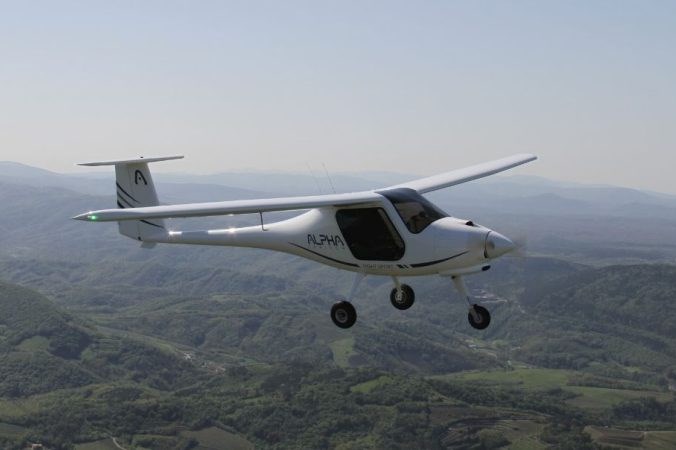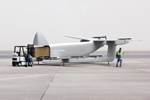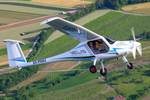Pipistrel makes first Canadian delivery of all-electric composite Velis Electro
EASA and CAA type-certified high-wing aircraft enables further research, collaboration for battery-powered flight.

Photo Credit: Pipistrel Aircraft
At the end of October (Ajdovš─Źina, Slovenia) made its first delivery to Canada of its all-electric, high-wing two-seat aircraft, the Velis Electro. The features a three-bladed, fixed-pitch composite propeller, and an entire structure predominantly using carbon fiber, fiberglass and Kevlar materials.
The Canadian customer, the (WISA) at the University of Waterloo and its partner Waterloo Wellington Flight Centre (WWFC), will use the Velis Electro to increase their research and collaborative capacity to evaluate battery-powered electric flight in Canada. Pipistrel continues its work with Transport Canada (a department with the government of Canada) toward its certification.
“This delivery is not only an exciting milestone for Pipistrel and the global presence of the Velis Electro, but also represents a steppingstone for Canada’s strategic investments to promote a greener aerospace industry and economy,” Gabriel Massey, president and managing director at Pipistrel, says.
The Pipistrel Velis Electro is reported to be the first commercially available type-certified electric aircraft currently in service, having achieved the European Union Aviation Safety Agency (EASA) type certification in 2020 and U.K. Civil Aviation Authority (CAA) certification in 2022. Pipistrel is currently pursuing a FAA airworthiness certificate for the Velis Electro. The fixed-wing aircraft produces noise levels of only 60 decibels and no exhaust gases, while cruising at an average speed of 90 knots and covering a range of 108 nautical miles at a payload weight of 172 kilograms (378 pounds).
Related Content
-
Low-cost, efficient CFRP anisogrid lattice structures
CIRA uses patented parallel winding, dry fiber, silicone tooling and resin infusion to cut labor for lightweight, heavily loaded space applications.
-
Hybrid process marries continuous, discontinuous composites design
9T Labs and Purdue applied Additive Fusion Technology to engineer a performance- and cost-competitive aircraft bin pin bracket made from compression-molded continuous and discontinuous CFRTP.
-
Aviation-specific battery system uses advanced composites to address electric, hybrid flight
BOLDair’s composite enclosure, compression structures and thermal runaway management enables high-performance electric energy storage.



